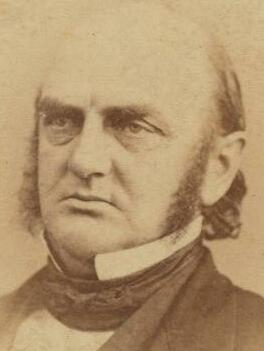Alexander Randall (Wisconsin politician) facts for kids
Quick facts for kids
Alexander Randall
|
|
|---|---|
 |
|
| 22nd United States Postmaster General | |
| In office July 25, 1866 – March 4, 1869 |
|
| President | Andrew Johnson |
| Preceded by | William Dennison, Jr. |
| Succeeded by | John Creswell |
| 3rd United States Minister to the Papal States | |
| In office June 6, 1862 – August 4, 1862 |
|
| President | Abraham Lincoln |
| Preceded by | John P. Stockton |
| Succeeded by | Richard Blatchford |
| 6th Governor of Wisconsin | |
| In office January 4, 1858 – January 6, 1862 |
|
| Lieutenant | Erasmus D. Campbell Butler Noble |
| Preceded by | Coles Bashford |
| Succeeded by | Louis P. Harvey |
| Wisconsin Circuit Court Judge for the 2nd Circuit |
|
| In office April 1856 – December 31, 1857 |
|
| Appointed by | Coles Bashford |
| Preceded by | Levi N. Hubbell |
| Succeeded by | Arthur MacArthur, Sr. |
| Member of the Wisconsin State Assembly from the Waukesha 4th district |
|
| In office January 10, 1855 – January 9, 1856 |
|
| Preceded by | Jesse Smith |
| Succeeded by | Charles S. Hawley |
| Personal details | |
| Born |
Alexander Williams Randall
October 31, 1819 Ames, New York, U.S. |
| Died | July 26, 1872 (aged 52) Elmira, New York, U.S. |
| Resting place | Woodlawn Cemetery Elmira, New York |
| Political party | Republican (1855–1872) Whig (Before 1838, 1849–1855) Free Soil (1848–1849) Democratic (1838–1848) |
| Spouses | Mary C. Van Vechten (died 1858) Helen M. Thomas (died 1918) |
| Children | Sarah Adaline Randall (b. 1843; died 1852) |
| Parents |
|
| Profession | lawyer, politician |
Alexander Williams Randall (October 31, 1819 – July 26, 1872) was an important lawyer, judge, and politician from Wisconsin. He served as the sixth Governor of Wisconsin from 1858 to 1861. He played a big role in getting the first Wisconsin volunteer soldiers ready for the Union Army during the American Civil War.
Contents
Life and Early Career
Alexander Randall was born in Ames, New York, on October 31, 1819. His father, Phineas, was also a judge. Alexander studied law with his father and became a lawyer at just 19 years old.
Soon after, he moved to Wisconsin Territory. In 1840, he opened his own law practice in Waukesha. He later became the postmaster there in 1845.
Political Beginnings
Randall was a delegate, or representative, at Wisconsin's first meeting to write its constitution in 1846. During this meeting, he successfully argued for a vote on whether African Americans should have the right to vote.
He was elected to the Wisconsin State Assembly in 1855. This is like being a state representative. He was also the first person from the Republican Party to run for Attorney General of Wisconsin, though he didn't win that election. From 1855 to 1857, he worked as a circuit judge in Milwaukee.
Governor of Wisconsin
Alexander Randall was elected governor in 1857 as a Republican. He won re-election in 1859. When he first ran for governor, he was a "dark horse" candidate. This means he wasn't expected to win.
Becoming Governor
At the Republican convention, two main candidates, Edward D. Holton and Walter McIndoe, couldn't get enough votes. When no one could win, the delegates (representatives) decided to vote for Randall. He was seen as a good compromise candidate.
Before the Civil War began, Randall was a strong supporter of abolitionism. This was the movement to end slavery. He even suggested that Wisconsin should leave the Union if Abraham Lincoln didn't become president.
As governor, Randall also looked into some issues with how federal land grants for railroads were given out in Wisconsin. These grants had been handled by the previous governor, Coles Bashford.
Role in the Civil War
When the American Civil War started, Governor Randall quickly got Wisconsin ready. He helped raise many soldiers for the Union Army.
- He organized 18 regiments (large groups of soldiers).
- He also formed 10 artillery batteries (groups with cannons).
- He created three cavalry units (soldiers on horseback).
Wisconsin sent more soldiers than it was asked to, thanks to Randall's efforts. The Union Army even created a military training camp in Madison, Wisconsin, on the old state fairgrounds. They named it "Camp Randall" after him. Today, Camp Randall Stadium stands on that same spot.
Later Federal Service
In 1861, President Abraham Lincoln appointed Randall to be the U.S. Minister to the Papal States. This was a diplomatic role, like being an ambassador. He served there for a short time.
In 1863, he became the Assistant Postmaster General. This job helped manage mail services across the country. Later, President Andrew Johnson appointed him as the main United States Postmaster General in 1866. He stayed in this important role until 1869.
When President Johnson faced an impeachment trial, Randall remained loyal to him. He even spoke in Johnson's defense and helped raise money for his legal costs.
Later Life and Legacy
After leaving his government jobs, Alexander Randall moved to Elmira, New York. He went back to working as a lawyer. He passed away there on July 26, 1872. He is buried in Woodlawn Cemetery.
Electoral History
Alexander Randall ran for several important offices during his career.
Wisconsin Governor Elections
- 1857 Election: Alexander Randall won the election for Governor of Wisconsin with 44,693 votes (49.63%). He defeated James B. Cross.
- 1859 Election: Randall was re-elected Governor, receiving 59,999 votes (53.21%). He won against Harrison Carroll Hobart.
 | Janet Taylor Pickett |
 | Synthia Saint James |
 | Howardena Pindell |
 | Faith Ringgold |

